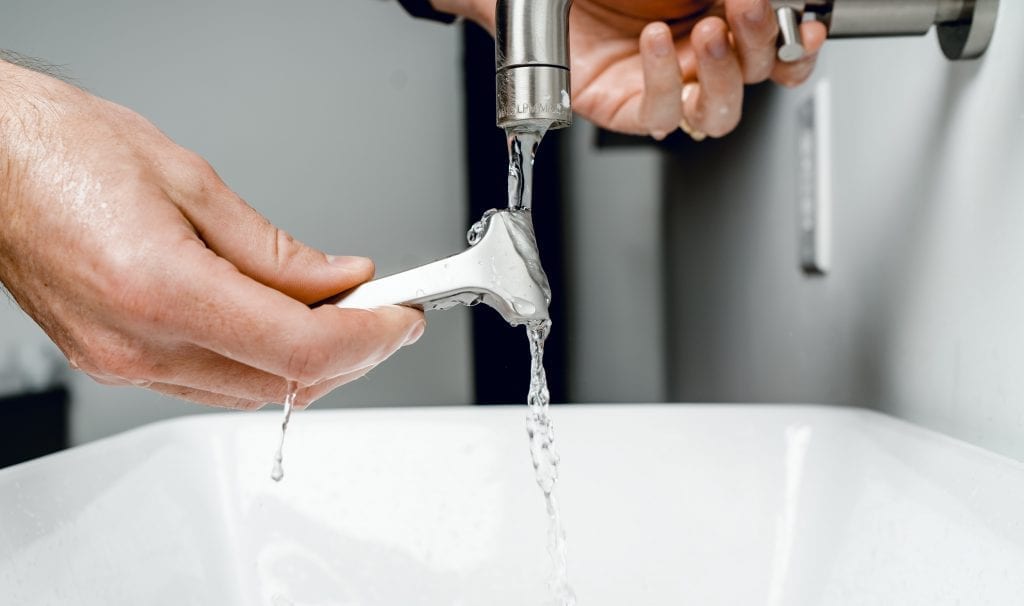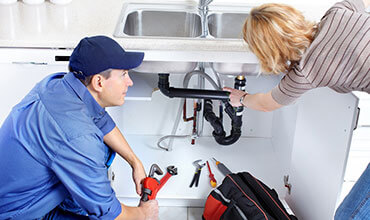Do you find yourself interested in details about Prevent Freezing and Bursting Pipes?

All property owners who live in warm climates must do their best to winterize their pipelines. Failing to do so can mean catastrophe like frozen, cracked, or ruptured pipelines.
Switch on the Faucets
When the temperature declines and also it seems as if the frigid temperature level will last, it will certainly assist to turn on your water both indoors and also outdoors. This will maintain the water streaming via your plumbing systems. In addition, the movement will certainly reduce the cold procedure. Significantly, there's no need to turn it on full blast. You'll end up squandering gallons of water this way. Rather, aim for about 5 decreases per minute.
Open Cupboard Doors Hiding Plumbing
When it's cold outside, it would certainly be practical to open cabinet doors that are concealing your pipelines. Doing this small trick can maintain your pipelines warm as well as limit the possibly hazardous outcomes of freezing temperature levels.
Take Some Time to Cover Exposed Piping
One awesome as well as simple hack to warm up freezing pipes is to cover them with warm towels. You can cover them initially with towels. After safeguarding them in place, you can put boiling water on the towels. Do it gradually to let the towels take in the fluid. You can likewise utilize pre-soaked towels in hot water, just don't forget to use safety gloves to safeguard your hands from the warm.
Attempt a Hair Dryer or Warmth Gun
When your pipelines are almost freezing, your reliable hair dryer or warmth gun is a blessing. If the warm towels do not assist remove any kind of working out ice in your pipelines, bowling hot air directly right into them may help. You might finish up damaging your pipes while trying to thaw the ice.
Shut Off Water When Pipes are Frozen
Switch off the major water shutoff immediately if you observe that your pipelines are entirely frozen or practically nearing that stage. You will usually find this in your basement or utility room near the heating unit or the front wall surface closest to the street. Turn it off right away to avoid further damages.
Don't neglect to close exterior water resources, too, such as your hookup for the yard home. Doing this will certainly stop additional water from filling your plumbing system. Regrettably, with even more water, even more ice will pile up, which will eventually bring about rupture pipes. If you are not sure concerning the state of your pipelines this wintertime, it is best to call an expert plumber for an examination. Taking this proactive technique can conserve you countless dollars in repairs.
All home owners who live in temperate climates should do their finest to winterize their pipes. Failure to do so can lead to disaster like frozen, fractured, or ruptured pipelines. If the hot towels do not aid remove any resolving ice in your pipelines, bowling hot air straight right into them may assist. Turn off the major water shutoff right away if you discover that your pipelines are totally frozen or nearly nearing that phase. With more water, more ice will certainly pile up, which will eventually lead to break pipes.
PREVENT YOUR PIPES FROM FREEZING THIS WINTER
A Leading Cause of Property Damage
When the weather is taking a deep nose dive into the cold dreary days, the risk of your pipes freezing and potentially bursting skyrockets. Unfortunately, during these cold dreary months, burst pipes are the most common denominator for property damage. The pipes that are most at the risk are those that are in areas where it is most cold in your home. For instance, pipes located in interior places such as basements, attics, and your garage. Unfortunately, that doesn’t mean that the pipes running through your cabinets or exterior walls can’t freeze. Good news, however, is that you can do things to help prevent pipes from freezing.
How to Prevent Pipes From Freezing
Once the temperature starts to drop during the winter, you should be taking the proper measures needed to ensure that your pipes stay warm and that there is circulation of water through them. Some steps that experts may recommend could go against your better judgement when it comes to saving water and heat. However, it would go without saying that when expenses are compared, damaged pipes could put a bigger dent in your wallet than a water bill.
What Can I Do?
Keep your garage door closed. This is very important, especially if you have water supply lines running through your garage. Open your kitchen and bathroom cabinets to allow warm air to circulate through them. Allow air circulation throughout your home. Keeping the interior doors open will once again allow the warm air to circulate inside your home. Ensure your thermostat is running the same temperature throughout the night and day. If you plan to be away from home during the cold months, set your temperature no lower than 55° F. This should provide enough heat to keep the pipes warm and prevent any remaining water inside the pipes from freezing. For more of a long-term solution, add insulation to attics, basement, and other crawl spaces around your home. By allowing your faucet to drip, it will alleviate pressure in the system. This is important because the pressure that is created between the blockage and the faucet can potentially cause the pipes to burst. Allowing the faucet to drip will prevent the pressure from building up, therefore keeping the pipes from bursting. Seal any cracks, openings, and crawl spaces around your home to prevent cold air from coming inside. This keeps your pipes-not to mention your home-warmer and less susceptible to issues caused by freezing temperatures. For the pipes in your home that are easily accessible, applying electrical tape to them might prevent them from freezing over. This is a quick fix, as you can apply the tape directly to the pipe. There are two options for heating tapes. One turns on and off by itself when it senses heat is needed. The other type of heating tape needs to be applied when heat is needed and removed when not necessary. If you have exposed pipes in your home, you can check this website to take a look at a few options that would be available at a shop near you.

As an enthusiastic person who reads on Winterizing Your Pipes, I assumed sharing that piece of content was a good thing. If you enjoyed our page kindly don't forget to share it. I appreciate reading our article about How to stop pipes from freezing during the winter.
Visit My Site